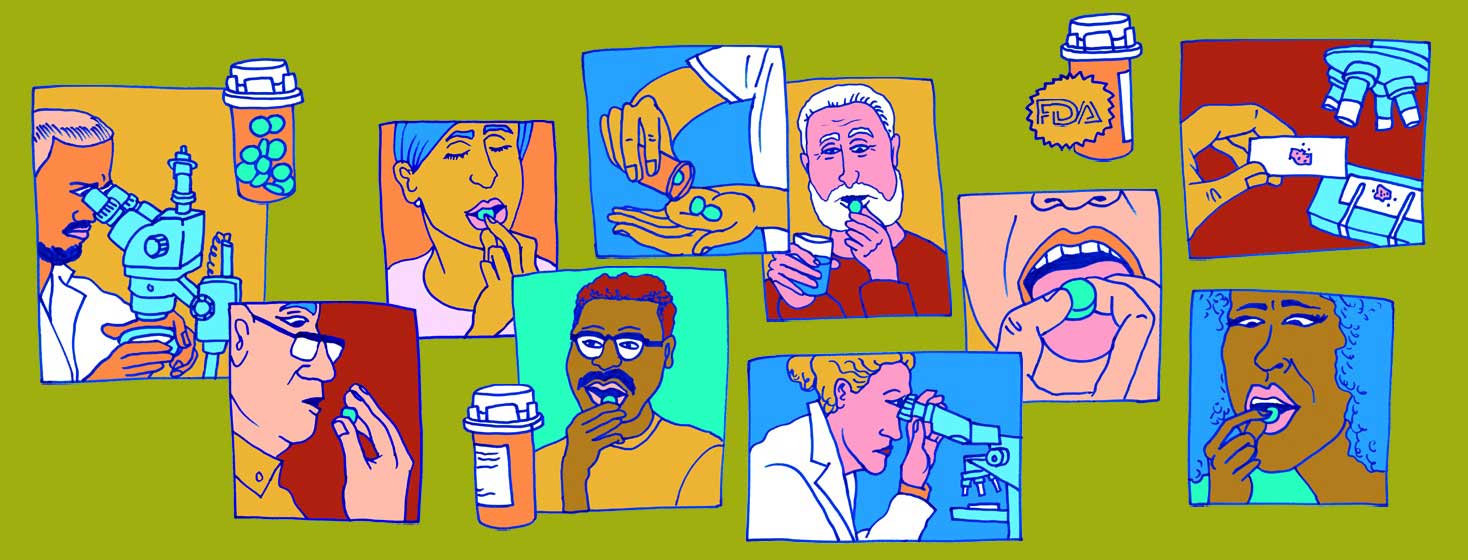Participating in Research for NMO
Medicine is based on research. Clinical trials using real people help determine how safe and effective treatments are. Research into Neuromyelitis optica spectrum disorder (NMO) is currently underway.1
A lot of progress on the condition has been made in the last decade. In just the last few years alone, the first NMO-specific treatment was approved by the U.S. Food and Drug Administration (FDA). This approval was made possible by clinical trials and their participants.1
Clinical trial participants with NMO are always needed
Because NMO is a rare disorder, there are fewer people affected. This means there is an even smaller pool of people to draw from for clinical trials. Whether or not you participate in clinical trials is up to you. However, because of NMO’s rarity, you will likely be asked about your interest in joining a clinical trial.
General stages of clinical trials
Before starting any clinical trial, experts must perform a lot of research. They also create detailed and safe plans for their trials (protocols).2
There are 4 phases of clinical trials. The first is with a very small group of volunteers to test the safety, dosage, and side effects of a drug. In most cases, these are healthy volunteers without the condition. This helps determine how the drug interacts with the body and what dosages are safe. Before using humans in phase 1, researchers often use animal models to get an estimate of what dosages to start with.2
Phase 2 and 3 studies typically have the same goal. These phases involve people with the condition. These phases look to see how effective a drug is and monitor for side effects. Phase 3 studies often involve many more people than phase 2. Phase 4 studies occur after a drug has been approved. This allows researchers to monitor for new or different side effects that may happen with long-term use.2
Finding current NMO clinical trials
One of the first resources you can use to find a clinical trial is your doctor. Your neurologist is an especially good resource. They may know of trials both in your area and afar that you can participate in.
You can also view current clinical trials both in the United States and around the world at ClinicalTrials.gov. At this time, there are several ongoing studies for NMO. Some look at different immunotherapies. Others look at alternative treatment options.
If you see a trial you are interested in, bring it to your doctor to see if it might be a good fit. Major research, advocacy, nonprofit, or professional groups also support or spread the word about clinical trials. These are also good places to look for clinical trials.
CIRCLES and SPHERES studies
- One organization supporting clinical trials related to NMO is the Guthy-Jackson Charitable Foundation. This group is supporting 2 studies:3-5
- CIRCLES (Collaborative International Research in Clinical and Longitudinal Experience in NMO Studies) – 1,100 people with NMO are enrolled in this study
- SPHERES (Synergy of Prospective Health and Experimental Research for Emerging Solutions in NMO) – This study has a goal to enroll 800 people with NMO
Each study has its own specific details, but they both have an overall goal of learning more about NMO. Participants provide blood samples for current and future research. They also continue to follow up with their doctor over time. At each visit, the participants provide details on their NMO symptoms, response to treatment, relapses, and more.3-5
All of this information is collected. Researchers can then use this database of information and blood samples to answer questions in the future. Some of these may be related to how well a treatment works and in which type of people.
Sometimes, markers in the blood can be found. These markers help predict how severe a condition is, a person’s response to treatment, or how likely it is they will relapse. All of these questions can be studied with the information provided by trial participants.
If you are interested in enrolling in the SPHERES trial, talk with your doctor for more information.

Join the conversation